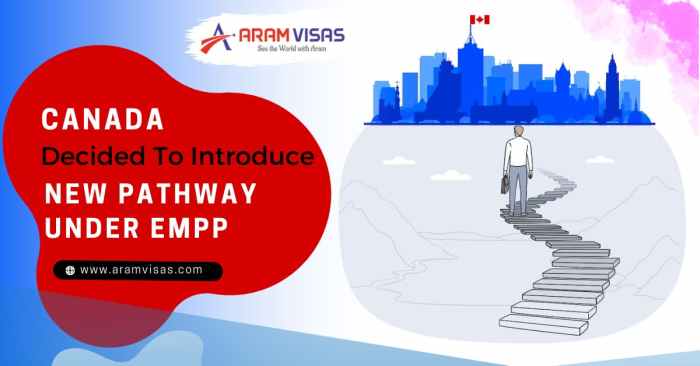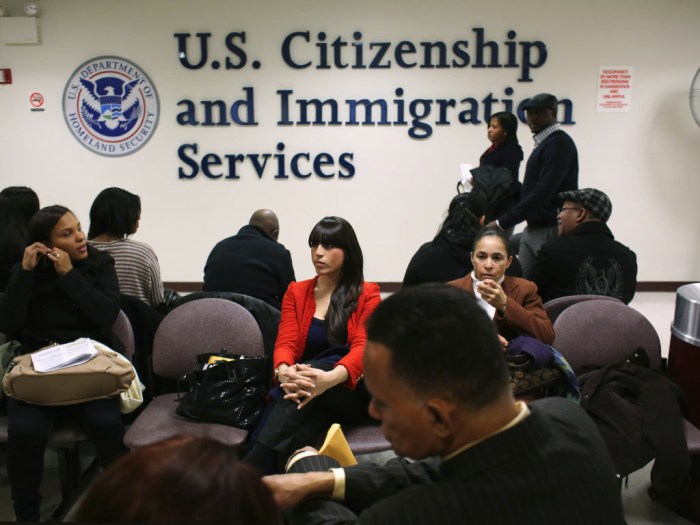Immigration pathway to citizenship answers – Embark on an informative journey as we delve into the intricacies of the immigration pathway to citizenship, providing comprehensive answers to your most pressing questions. From legal considerations to application procedures, this guide equips you with the knowledge and understanding necessary to navigate this transformative process.
Our exploration delves into the various stages and requirements involved, empowering you with a clear roadmap towards achieving your citizenship goals. By examining real-world examples and expert insights, we illuminate the path to a brighter future.
Understanding the Immigration Pathway to Citizenship

An immigration pathway to citizenship refers to a legal framework that Artikels the process for foreign nationals to acquire citizenship in a new country. It involves navigating various stages and fulfilling specific requirements, with the ultimate goal of becoming a naturalized citizen.
The pathway typically consists of several phases, including: establishing legal status, obtaining permanent residency, and applying for citizenship. Each stage may have its own eligibility criteria and documentation requirements.
Common immigration pathways include family-based sponsorship, employment-based sponsorship, and humanitarian programs (e.g., asylum or refugee status).
Legal Considerations and Eligibility
Obtaining citizenship through immigration requires adherence to legal requirements and eligibility criteria. These vary depending on the immigration pathway pursued and the specific laws of the country in question.
Eligibility criteria often include factors such as: nationality, residency duration, language proficiency, financial stability, and absence of criminal convictions.
Legal counsel can provide invaluable assistance in navigating the complexities of immigration law, ensuring that all requirements are met and applications are submitted correctly.
Documentation and Applications
The immigration application process involves submitting a comprehensive set of documents that provide evidence of identity, residency, and eligibility. These documents may include:
- Passport
- Birth certificate
- Marriage certificate (if applicable)
- Employment records
- Financial statements
- Proof of language proficiency
Applications must be submitted in accordance with the prescribed procedures and timelines. Accuracy and completeness of documentation are crucial for successful processing.
Interviews and Background Checks: Immigration Pathway To Citizenship Answers

Immigration interviews are conducted to verify the applicant’s identity, assess their eligibility, and gather additional information. They typically involve questions about personal history, immigration status, and motivations for seeking citizenship.
Background checks are conducted to screen for potential security risks or criminal activity. These checks may involve reviewing criminal records, interviewing references, and verifying employment history.
Preparation for interviews and background checks is essential to ensure a smooth and successful process.
Decision-Making and Outcomes

Citizenship applications are adjudicated based on a thorough review of the submitted documents, interview transcripts, and background check results. Factors considered include:
- Completeness and accuracy of the application
- Applicant’s eligibility
- National security concerns
- Public interest
Possible outcomes of citizenship applications include approval, denial, or a request for additional information. Applicants may have the right to appeal denied applications.
Additional Considerations
Pursuing citizenship through immigration can present challenges, including:
- Language barriers
- Financial constraints
- Lengthy processing times
- Potential for denial
Support systems and resources are available to assist immigrants in navigating these challenges. These include legal aid organizations, community groups, and government programs.
Obtaining citizenship brings significant benefits and responsibilities. Citizens enjoy the full rights and privileges of the country, including the right to vote, hold public office, and travel freely.
FAQ Overview
What are the eligibility criteria for immigration pathways to citizenship?
Eligibility criteria vary depending on the specific pathway chosen. Common requirements include meeting residency requirements, demonstrating good moral character, and passing background checks.
What documents are required for immigration applications?
The list of required documents can vary depending on the pathway and country of origin. Typically, applicants must provide proof of identity, residence, income, and any other supporting documents as requested by the relevant authorities.
What is the role of legal counsel in the immigration process?
Legal counsel can provide valuable guidance and representation throughout the immigration process. They can assist with understanding legal requirements, preparing applications, and representing clients in interviews and hearings.